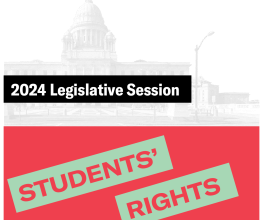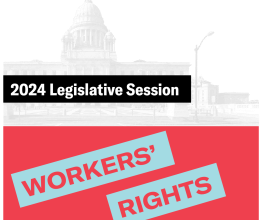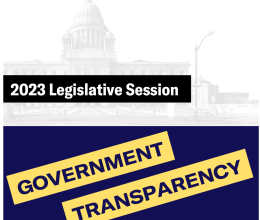The Rhode Island ACLU has filed a federal civil rights complaint against the state’s Department of Human Services for violating a federal law and a consent agreement with the federal government that requires the agency to provide appropriate interpreter services to clients with limited English proficiency (LEP). The 11-page complaint follows both controversial comments recently made by Governor Carcieri denouncing state-funded interpreters for DHS clients, and layoffs of all the agency’s Southeast Asian interpreters.
The ACLU complaint, submitted to the Office of Civil Rights (OCR) of the U.S. Department of Health and Human Services in Boston, alleges that the state is in violation of a consent agreement it entered into with the federal government ten years ago to resolve similar grievances against DHS. The complaint further argues that the state’s plan to use private contract services in place of the three laid-off Southeast Asian staff interpreters fails to meet the state’s obligations under federal law.
Among provisions of the consent agreement which the ACLU says the agency has failed to follow are requirements: that DHS offices contain posters in appropriate languages advising LEP clients of their right to have the agency provide them interpreter services; that notices sent to those clients contain certain information about their rights in their native language; that timely interpreter services be provided; and that DHS consult with community groups about the adequacy of the agency’s interpreter services. On the first issue, requiring DHS to conspicuously display posters about the rights of LEP clients, the ACLU complaint notes that “on-site inspections of the Providence, Cranston, Pawtucket and Newport offices [this month] revealed no display of any such posters, in direct contravention of the resolution agreement.”
In addition to ensuring compliance with the 1997 agreement, the ACLU complaint asks OCR to impose additional sanctions against the agency in order to better protect the rights of LEP clients. In that regard, referring to the Governor’s radio talk show comments, the complaint notes that “state officials have since acknowledged their legal obligations to provide, in some fashion, interpreter services to DHS clients. However, the comments of the State’s chief executive officer must be taken into account as OCR examines the agency’s plans to comply with those obligations, considers DHS’ good faith commitment to appropriately serving LEP clients in the future, and determines the level of sanctions that should be imposed. As the head of state, the Governor sets the direction for the State’s executive agencies, and his comments have sent an unmistakable message to DHS. In that regard, OCR must also take into account DHS’ contemporaneous decision to lay off an entire category of staff interpreters. Finally, the agency’s substantial non-compliance with the long-standing 1997 resolution agreement must also be considered. Under all these circumstances, strong sanctions are warranted and necessary."







